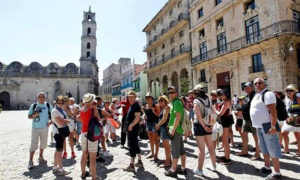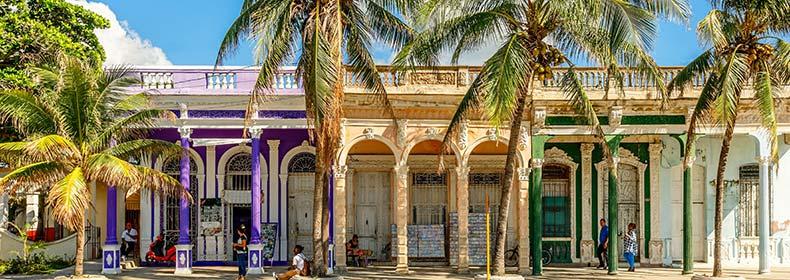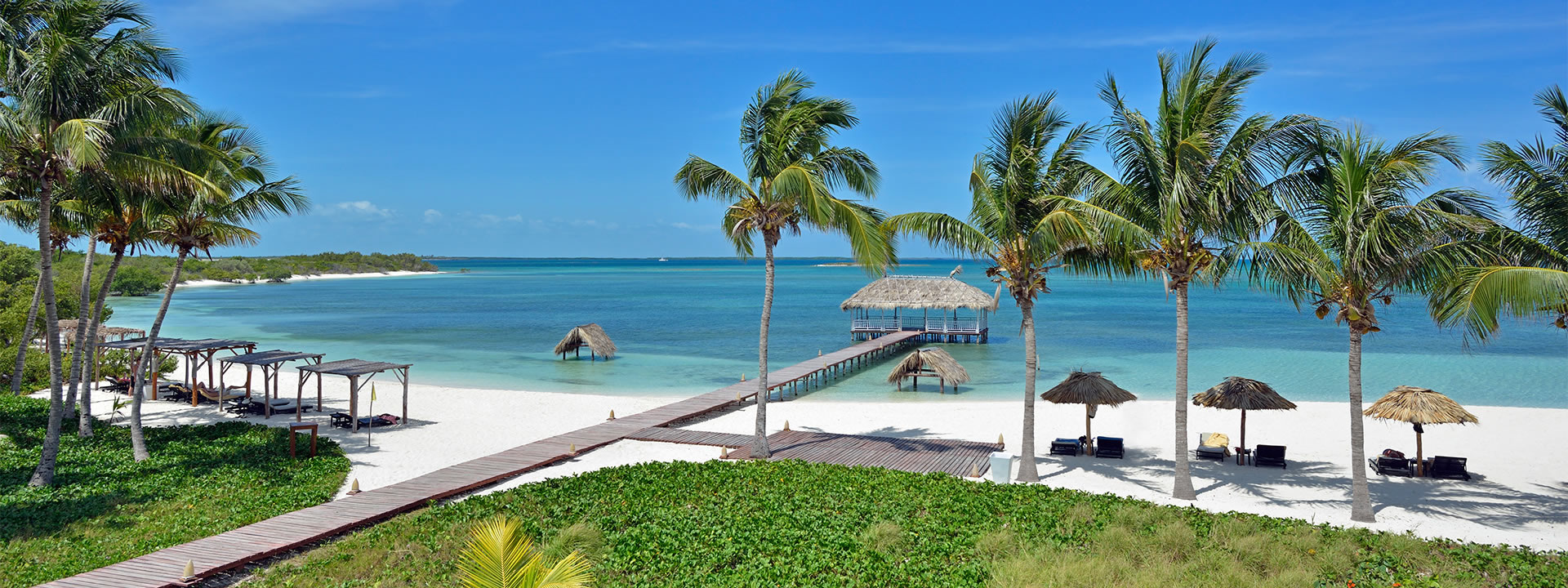 CAE EN ENERO EL TURISMO MUNDIAL HACIA CUBA EN UN 20 POR CIENTO.
CAE EN ENERO EL TURISMO MUNDIAL HACIA CUBA EN UN 20 POR CIENTO.
El turismo a Cuba cayó un 19,6% interanual en enero pasado, plena “temporada alta”, cuando arribaron a la Isla apenas 393.762 viajeros, 95.856 menos que en igual mes de 2019, según datos publicados el jueves por la Oficina Nacional de Estadísticas e Información (ONEI).
Canadá, el principal emisor de turistas a la Isla, tuvo un ligero crecimiento del 2,1%, aunque el mayor aumento lo experimentó Rusia, uno de los mercados que más crece tras el fortalecimiento de los vínculos entre Moscú y La Habana, y que ganó un 48,4%.
Con 24.842 viajeros, el pujante mercado ruso desplazó a EEUU como tercera fuente de turistas a la Isla, que sufre los efectos de las nuevas sanciones de Washington contra La Habana —a la que responsabiliza por su apoyo decisivo a Nicolás Maduro—, entre ellas la eliminación de los cruceros desde puertos estadounidenses y la cancelación de vuelos a todos los aeropuertos, con excepción de La Habana.
El desplome del número de visitantes de la nación norteamericana fue notable: un 68,8% menos que en enero del año pasado.
La comunidad cubana en el exterior, la segunda fuente de viajeros, se contrajo un 12,9% justo en el mes en que una parte del exilio llamó a realizar un parón en los viajes y los envíos de remesas y recargas telefónicas, como mecanismo para ejercer presión sobre el Gobierno cubano para que respete los derechos humanos.
También es destacable la disminución de casi el 50% de turistas ingleses, en coincidencia con la quiebra en septiembre último del gigante Thomas Cook, hasta ese momento el principal emisor de británicos a Cuba.
El resto de los principales mercados europeos mantienen la tendencia a la baja percibida a fines de 2019: Francia (24,5%), Alemania (29,7%) e Italia (20,5%).
Solo España muestra una caída moderada, con una reducción del 6,1%, mucho menor que la de sus vecinos.
El turismo es la segunda fuente de ingresos del Gobierno, por detrás de las “misiones médicas”, entre otras que implican la comercialización de servicios profesionales al exterior, lo que contribuye en un 10% al producto interior bruto (PIB) y genera aproximadamente medio millón de empleos.
 FALLS IN JANUARY TOURISM TO CUBA BY 20 PERCENT.
FALLS IN JANUARY TOURISM TO CUBA BY 20 PERCENT.
Tourism to Cuba fell 19.6% year-on-year last January, full “high season”, when only 393,762 travelers arrived on the island, 95,856 less than in the same month of 2019, according to data published Thursday by the National Statistics Office and Information (ONEI).
Canada, the main issuer of tourists to the Island, had a slight growth of 2.1%, although the largest increase was experienced by Russia, one of the fastest-growing markets after strengthening ties between Moscow and Havana, and that won 48.4%.
With 24,842 travelers, the thriving Russian market displaced the US as a third source of tourists to the Island, which suffers the effects of Washington’s new sanctions against Havana – to which it holds responsible for its decisive support for Nicolás Maduro -, among them the Elimination of cruises from US ports and cancellation of flights to all airports, with the exception of Havana.
The collapse of the number of visitors to the US nation was notable: 68.8% less than in January last year.
The Cuban community abroad, the second source of travelers, contracted 12.9% just in the month in which a part of the exile called for a stop in travel and remittance shipments and telephone recharges, as a mechanism for exerting pressure on the Cuban government to respect human rights.
Also noteworthy is the decrease of almost 50% of English tourists, coinciding with the bankruptcy of the giant Thomas Cook last September, until that time the main issuer of Britons to Cuba.
The rest of the main European markets maintain the downward trend perceived at the end of 2019: France (24.5%), Germany (29.7%) and Italy (20.5%).
Only Spain shows a moderate fall, with a 6.1% reduction, much smaller than that of its neighbors.
Tourism is the second source of government revenue, behind “medical missions”, among others that involve the commercialization of professional services abroad, which contributes 10% to the gross domestic product (GDP) and generates approximately half-million jobs
Agencies/ DDC/ Internet Photos/ Arnoldo Varona/ www.TheCubanHistory.com
THE CUBAN HISTORY, HOLLYWOOD.










